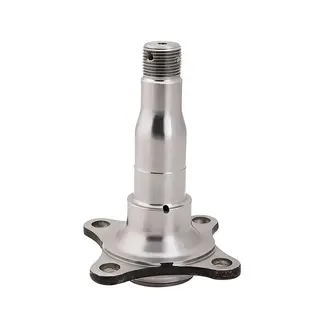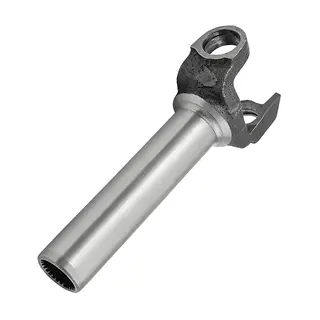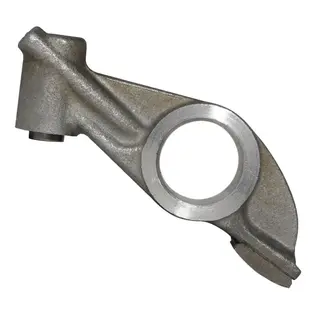At our facility, we offer comprehensive customized forging services, providing solutions for components that demand exceptional strength, durability, and precision. Our expertise spans hot forging, cold forging, open-die, closed-die, precision forging, and press forging, enabling us to meet the unique requirements of diverse industries including aerospace, automotive, energy, and heavy machinery.
Hot forging involves shaping metals at temperatures above their recrystallization point, drastically improving ductility and malleability. By heating metals to 0.6–0.9 of their melting temperature, we can produce large and complex components without fracturing. Techniques include open-die, closed-die, press, hammer, and isothermal forging. Hot forging refines the grain structure, enhancing fatigue resistance, toughness, and isotropy of mechanical properties, making it ideal for turbine disks, crankshafts, axles, and high-strength industrial parts.
Cold forging is performed at or near room temperature, using high pressure to shape metals without heating. This process relies on strain hardening, resulting in high dimensional accuracy, superior surface finish, and increased mechanical strength. Operations include heading, extrusion, coining, drawing, and rolling. Cold forging is especially suited for high-volume precision components such as fasteners, gears, connectors, and transmission parts.
One of the oldest forging methods, open-die forging shapes heated billets between flat or simple dies that do not enclose the workpiece. It offers flexibility for large, simple shapes, excellent grain flow, and improved fatigue resistance. While less precise than closed-die forging, it is ideal for shafts, rollers, discs, and large rings, particularly where material integrity is more critical than dimensional accuracy.
Closed-die forging uses dies with cavities that fully enclose the heated workpiece, enabling complex geometries and high dimensional precision. Flash formation ensures full die filling and material density. This method is widely used for mass-produced automotive and aerospace components such as gears, connecting rods, and structural parts, where repeatability and surface finish are paramount.
Precision forging is an advanced technique designed to produce near-net or net shape parts, minimizing or eliminating the need for post-forging machining. By combining hot, warm, and cold forging techniques, precision forging ensures tight tolerances, smooth surface finishes, optimized grain flow, and material efficiency. It is ideal for critical automotive, aerospace, energy, and industrial machinery components requiring strength, accuracy, and reduced material waste.
Press forging shapes metals under slow, continuous, and controlled pressure, allowing deformation to penetrate the full cross-section. It enhances mechanical properties, dimensional accuracy, and energy efficiency compared to hammer forging. Suitable for both open- and closed-die applications, press forging is used for axles, shafts, gears, turbine components, and heavy-duty industrial parts.
Versatility: Multiple forging methods to suit complex or simple designs, large or small components.
Mechanical Excellence: Optimized grain flow, fatigue resistance, and material integrity.
Precision & Efficiency: Near-net shapes, tight tolerances, and reduced machining.
Industry Expertise: Proven applications in aerospace, automotive, energy, and heavy machinery.
Tailored Solutions: Each project is customized to meet specific performance, size, and material requirements.


